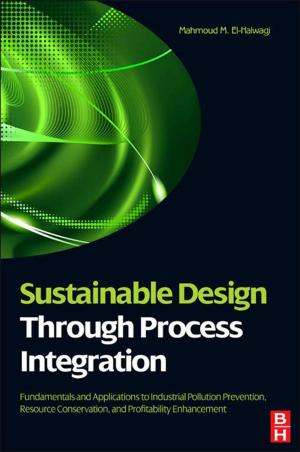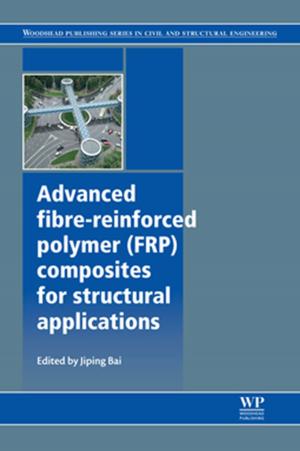Silica and Clay Dispersed Polymer Nanocomposites
Preparation, Properties and Applications
Nonfiction, Science & Nature, Technology, Material Science, Manufacturing| Author: | ISBN: | 9780081021309 | |
| Publisher: | Elsevier Science | Publication: | June 13, 2018 |
| Imprint: | Woodhead Publishing | Language: | English |
| Author: | |
| ISBN: | 9780081021309 |
| Publisher: | Elsevier Science |
| Publication: | June 13, 2018 |
| Imprint: | Woodhead Publishing |
| Language: | English |
The production of ‘polymer nanocomposites’ has recently gained considerable attention from both the academic and industrial community, especially in the area of nanoscience. This is mainly due to their enhanced improvements in physico-mechanical, thermal and barrier properties compared to micro and more conventional composites. Their nanoscale dimensions, biodegradable character, cost-effectiveness and sustainability have constituted a stimulus for this increasing interest. Currently there is no limit to the possibility of applications. However, despite all this progress, it is still difficult to achieve uniform dispersion between the filler and the matrix, as agglomerations form far too easily and the production of polymer nanocomposites with high mechanical and thermal properties is still limited.
The authors of this proposed book, are of the opinion, that with the increase in scientific publications and the rapid progress in processing possibilities to produce nanocomposites based on various nanoscale fillers (silica/clay), a book that collects all of these scientific findings in one place would be timely and of great interest to both students and scientific researchers, who are concerned with the production, and application of nanocomposites as new innovative materials.
The authors aim is to present the latest research findings on the fabrication, properties and applications of nanofillers as reinforcement in polymer nanocomposites. Particular emphasis will be placed on the introduction of various nanofillers (silica/clay) into different elastomeric polymer matrices that will enhance the properties of these materials and their applications. The book will provide an up-to-date review of major innovations in the field and act as a reference for future research in materials science and engineering, which is highly topical due to the demand to produce more sustainable and eco-friendly innovative advanced materials from elastomeric polymers.
- Emphasis on silica/clay as outstanding reinforcing potential in elastomeric polymer matrices
- Up-to-date on the most relevant innovations in the field of silica/clay nanocomposites and their extensive applications in advanced material science
- Establishes the most suitable fabrication methods, properties and applications as a solid foundation in materials science and engineering disciplines
- Includes the incorporation of dual nanofillers that significantly improve the properties of nanocomposites
The production of ‘polymer nanocomposites’ has recently gained considerable attention from both the academic and industrial community, especially in the area of nanoscience. This is mainly due to their enhanced improvements in physico-mechanical, thermal and barrier properties compared to micro and more conventional composites. Their nanoscale dimensions, biodegradable character, cost-effectiveness and sustainability have constituted a stimulus for this increasing interest. Currently there is no limit to the possibility of applications. However, despite all this progress, it is still difficult to achieve uniform dispersion between the filler and the matrix, as agglomerations form far too easily and the production of polymer nanocomposites with high mechanical and thermal properties is still limited.
The authors of this proposed book, are of the opinion, that with the increase in scientific publications and the rapid progress in processing possibilities to produce nanocomposites based on various nanoscale fillers (silica/clay), a book that collects all of these scientific findings in one place would be timely and of great interest to both students and scientific researchers, who are concerned with the production, and application of nanocomposites as new innovative materials.
The authors aim is to present the latest research findings on the fabrication, properties and applications of nanofillers as reinforcement in polymer nanocomposites. Particular emphasis will be placed on the introduction of various nanofillers (silica/clay) into different elastomeric polymer matrices that will enhance the properties of these materials and their applications. The book will provide an up-to-date review of major innovations in the field and act as a reference for future research in materials science and engineering, which is highly topical due to the demand to produce more sustainable and eco-friendly innovative advanced materials from elastomeric polymers.
- Emphasis on silica/clay as outstanding reinforcing potential in elastomeric polymer matrices
- Up-to-date on the most relevant innovations in the field of silica/clay nanocomposites and their extensive applications in advanced material science
- Establishes the most suitable fabrication methods, properties and applications as a solid foundation in materials science and engineering disciplines
- Includes the incorporation of dual nanofillers that significantly improve the properties of nanocomposites















